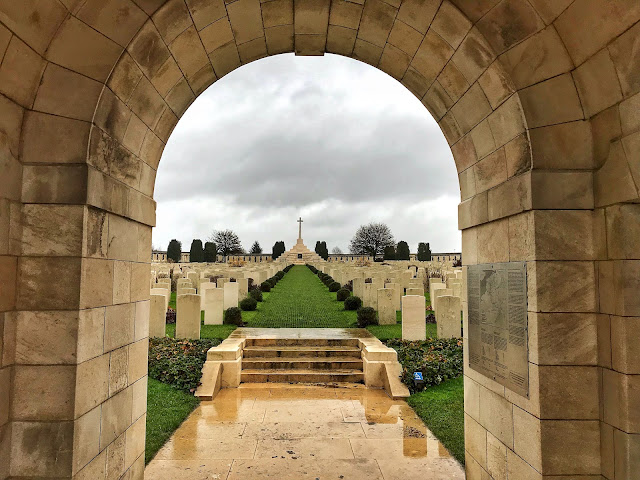May We Sell Intoxicants There? The YMCA's Religious Principles
In beginning my dissertation research, I have been rifling through the First World War archives of the YMCA, reading the records and publications of the organisation who were mobilised to provide comfort to soldiers both at home and at the front. Of particular interest are the transcriptions of the correspondence made by Leonard Gamier Pilkington, secretary to the YMCA, throughout the war.
 |
| YMCA canteen near the front (source) |
Pilkington's request seems straightforward. The YMCA Huts were designed to bring comfort to their soldiers and care for their needs. Many men liked to drink and it can be seen that by providing them alcohol at the huts, they could enjoy a beer without the other temptations of a bar.
 |
| American YMCA poster (source) |
In doing so, Yapp took the same approach as Tubby Clayton at Talbot House near Ypres. Both Yapp and Clayton were committed to providing home comforts but for both this extended only as far as tea and coffee; they both prohibited intoxicants.
Both organisations shared the same Christian ethos. While much of what they did supported soldiers materially; providing food, entertainment, and a place to rest, they did so in order to foster a religious spirit among the soldiers. The Chaplain General, John Taylor Smith, connected the two, saying 'their efforts ... for the highest welfare of the Army' show a 'true Catholic spirit', making it easier for soldiers to live a 'noble, true and clean' Christian life during service. Yapp himself called this the 'living message of the YMCA' which ran through everything they did and every decision they made.
As part of the YMCA's Christian role, it made a commitment to be non-denominational. Through the prohibition of alcohol, Yapp ensured that all teetotal soldiers were made to feel welcome, including Methodists who, as a congregation, didn't drink. Many Methodists were also pacifists and would not fight, although many did serve in the Medical and Labour Corps and would thus come into contact with the YMCA behind the lines.
It is clear from his correspondence with Pilkington, that Yapp was a man motivated by his faith and of both religious and moral conviction. He cared not for the popularity of the YMCA but for its ability to fulfil its duty, to deliver Christian care. He warned Pilkington that 'quite frankly I would rather see the place an admitted failure and not set apart later on for the use of the troops, than do what I believe would be absolutely wrong from a ... moral standpoint'. In effect, to Yapp the sale of alcohol would have been an equivalent failure as if no one had used the hut.
 |
| YMCA motor kitchen (source) |
But did this matter? Yapp admitted that 'very often there is a queue extending the whole length of the hut waiting for coffee' and cinema sessions could be 'packed with nearly a thousand men'. I am yet to find any text in which Yapp directly addresses whether he minds people only using the YMCA for material comfort but, reading between the lines, he seems appreciative for the men to have any contact, directly or vicariously, with the Christian message which may instill a sense of religious morality. In order to achieve this, it was therefore important to him not to compromise those morals by selling alcohol at the YMCA.
Kathryn
PS. Please get in contact if you know of/ have access to any sources regarding the YMCA in the First World War. They would be very helpful for my MA dissertation research!
Sources: The YMCA Archive is held by the Cadbury Research Library, University of Birmingham.
LG Pilkington and AK Yapp, correspondence 23/11/1914-03/02/1915, YMCA/2/3/K26/20-23
AK Yapp, 'In France and Flanders' YMCA pamphlet, YMCA/2/3/K26/5
Rev EW Soothill, 'The Red Triangle Bulletin, 16/11/1917, YMCA/K/2/1/15


No comments: